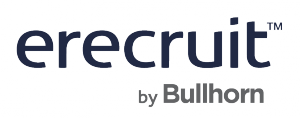How to build an exceptional team
The success of a business is largely dependent on its ability to hire the right people. We all know that. However, did you realize that hiring the workers is more than just picking individuals with the right skill set and drive? Employees’ ability to work together in a cohesive manner organically can have a drastic impact on the efficiency and output of a team.
Whether a team’s goal is to create an innovative service, crunch the numbers or manage a group of people, the dynamic between the individuals who make up that group matters. Merging personalities, backgrounds and the strengths and weaknesses of a team takes more than filling in a quick skill chart.
According to Harvard Business Review, high-performing teams are the result of individuals with superior levels of cooperation, participation and collaboration driven from trust and a shared strong sense of group identity. These exceptional teams posses high levels of group emotional intelligence and have confidence in their effectiveness as a team.
“When you create a climate of trust and the sense that ‘We are better together than we are apart,'” Vanessa Urch Druskat, an associate professor at the University of New Hampshire, told the news source. “It leads to greater effectiveness.”
Staffing firms helping their clients fill roles are aware of the desired team dynamics that promotes high-performing departments. However, with all of the data involved with appropriately filling these positions, a recruitment agency can quickly become overburdened with details, which can lead to an unorganized mess that promotes inefficiency. Firms desiring a more effective approach will find that up-to-date, intuitive staffing agency software, developed by industry professionals who know the staffing business, provides the details recruiters need in an easy-to-access format. The information that will help drive effective contingent staff placing and better allow a consultant to recommend the missing link in a department will be readily available.
Here are a few tips on how to create a strong team:
1. Balance power displays. Amidst the team dynamic, a manager exerting his or her control over the group constantly can squelch discussion and intimidate workers. However, fearing the position and being unable to lead a group will have negative consequences as well. Instead, your best strategy would be to let workers keep personal autonomy and feel free to discuss and bounce ideas around with the team. When it comes time for execution or making a decision you can lead the pack, while still listening and taking into account other people’s opinions.
2. Celebrate success. It’s unavoidable – there are lows to every job. However, there are highs as well. Building a high-functioning team will involve celebrating the highs and recognizing the individuals who help bring success. Both individual and group achievements should be celebrated and it doesn’t always have to be something big. Positive people help make a team friendlier and are willing to congratulate someone, clap or offer words expressing solidarity.
3. Define workers’ roles. It’s unlikely that members of a team will have the same job description or be directed to the same tasks. However, to avoid conflict it’s best to clearly define everyone’s role in the team. Hypothetically, if a worker knows his or her place in the team’s inner workings, regardless of whether a person is a contingent worker or permanent, they will feel more comfortable. Understanding the role and the expectations that come with that position will allow an individual to merge more effectively in a group dynamic and get acclimated to a job faster.

 As CMO for a large
As CMO for a large 